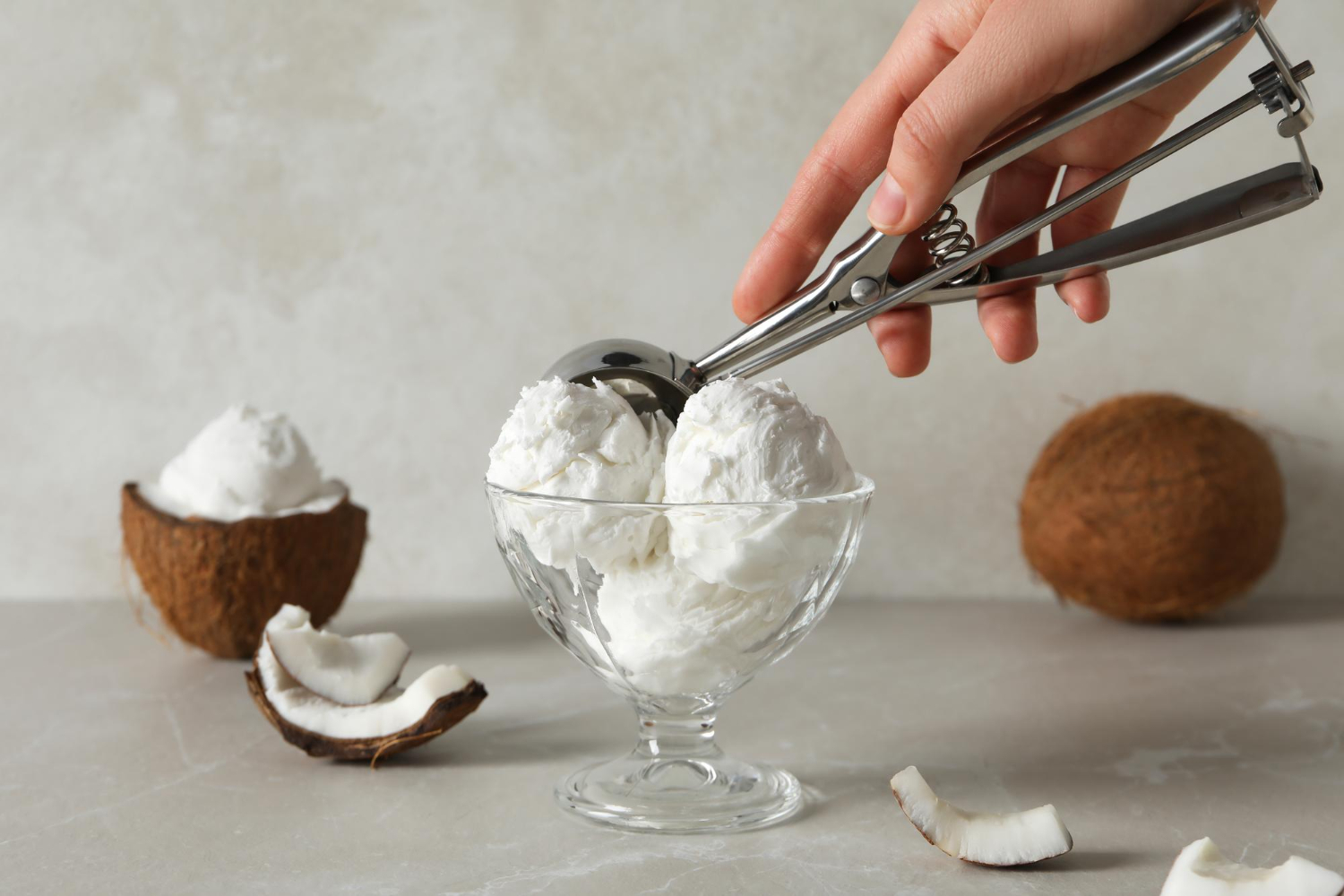In our quest for healthier alternatives to refined sugar, we often find ourselves caught in the labyrinth of sweetening options. However, there’s one natural sweetener that’s been silently making waves in the health-conscious circles for its nutritional benefits and low glycemic index: coconut sugar.
Delving deep into the world of this tropical sweetener, this comprehensive guide presents a thorough exploration of coconut sugar, its myriad benefits, uses, and even how it measures up against other popular alternatives in the market.
From the lush, sun-drenched plantations where it’s sourced, to your morning cup of coffee or your favourite dessert, discover how coconut sugar can add a touch of sweetness to your life, without the guilt or harmful effects of regular sugar.
Embrace A Healthier Lifestyle: The Perks of Using Coconut Sugar
1. The Health Benefits: Why Coconut Sugar is Gaining Popularity
The steady rise of coconut sugar’s popularity can be attributed to its remarkable health benefits, which make it a favourable alternative to traditional sweeteners:
- Low Glycaemic Index: With a glycaemic index (GI) of 54, coconut sugar releases energy slowly, preventing rapid spikes in blood sugar levels and supporting healthier dietary choices.
- Nutrient-Rich: In comparison to regular sugar, coconut sugar boasts vital nutrients such as potassium, magnesium, zinc, and iron, making it a more nutritious choice.
- Reduced Fructose Content: Coconut sugar’s fructose content is significantly lower than that of many other sweeteners, offering a more health-conscious alternative.
These health benefits position coconut sugar as a preferable ingredient for those looking to improve their well-being and make more sustainable choices.
2. Sustainability Matters: Eco-Friendly Production of Coconut Sugar
A growing interest in sustainable food sources has brought attention to coconut sugar as an eco-conscious option. The environmentally friendly production practices employed in its creation vastly minimise the depletion of land and water resources:
- Efficient Resource Use: Coconut palms produce twice the amount of sugar per acre as cane sugar, while using just 20 per cent of the water.
- Preservation of Habitats: Unlike cane sugar production, which threatens native habitats, coconut palms require minimal land and can coexist with other flora and fauna.
- Improved Farmer Livelihoods: Coconut sugar production offers farmers in coconut-growing regions a more sustainable, long-term income source with minimal ecological impacts.
By choosing coconut sugar, consumers can positively contribute to a more sustainable global food system.
3. How to Incorporate Coconut Sugar in Your Kitchen
Eager to try this healthier, sustainable sweetener alternative? Here are some tips and ideas on incorporating coconut sugar into your daily culinary adventures:
- One-to-One Ratio: Coconut sugar can be used as a simple one-to-one replacement for white and brown sugar in most recipes, ensuring a seamless adaptation.
- Baking Bliss: Enhance your desserts, cakes, and cookies by substituting coconut sugar, adding a touch of flavourful caramel sweetness that complements a wide range of baked goods.
- Morning Boost: Swap granulated sugar for coconut sugar in your morning coffee or tea to experience a mild and earthy sweetness, while also reaping the associated health benefits.
- Savoury Creations: Coconut sugar’s distinctive flavour profile offers a delightful twist to many savoury dishes, such as barbeque marinades or glazes for roasted vegetables.
These simple suggestions provide a fitting starting point for embracing coconut sugar as a delicious and health-conscious alternative to regular sugar.
4. Delicious Coconut Sugar Recipes for a Nutritious Twist
Inspire your kitchen creativity with these delicious recipes that demonstrate coconut sugar’s versatility in an array of delightful dishes:
- Coconut Sugar Apple Crumble: Impress your dinner guests with a sumptuous apple crumble featuring a crunchy topping made with coconut sugar, flour, and butter, served warm with a scoop of vanilla ice cream.
- Coconut Sugar Roasted Root Vegetables: Create a wholesome and flavour-packed side dish by roasting a medley of root vegetables, tossed in a glaze of coconut sugar, olive oil, and fresh herbs.
- Coconut Sugar Banana Bread: Give your classic banana bread recipe a nutritious spin by swapping out refined sugar for coconut sugar, imparting a rich, caramel depth to this beloved treat.
- Coconut Sugar Oatmeal Raisin Cookies: Indulge in a nostalgic favourite by preparing a batch of chewy oatmeal raisin cookies sweetened with coconut sugar.
Allow these recipes to serve as a launching pad for your culinary experimentation with coconut sugar, inspiring you to create nutritious and delightful dishes for every occasion.
Natural and Nutritious: How Coconut Sugar is Changing the Game
Boasting an array of health benefits, sustainable production practices, and versatile uses in both sweet and savoury dishes, it’s no wonder that coconut sugar has emerged as a popular alternative to traditional sweeteners. For those wishing to embark on a more health-conscious and eco-friendly culinary journey, incorporating coconut sugar into their daily lives unlocks a world of enticing flavours, guilt-free indulgence, and numerous wellness benefits.
Experience the unparalleled quality and taste of Ceylon Exports & Trading (Pvt) Ltd’s premium organic coconut sugar from Sri Lanka, and elevate your culinary creations to new heights of flavour and sustainability. Transform your dishes, support a healthier lifestyle, and contribute to a more environmentally responsible world by embracing the delicious potential of this natural and nutritious sweetener.






